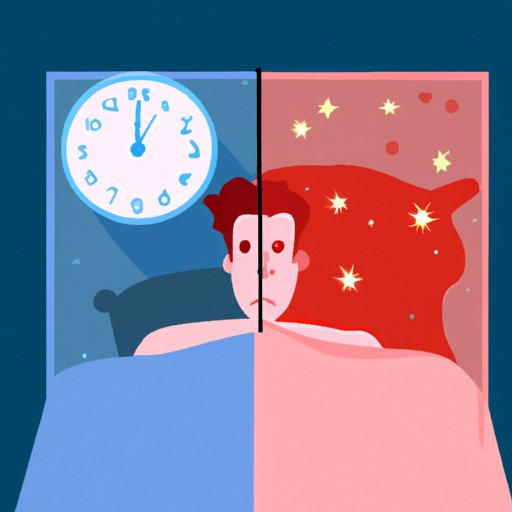
Introduction
We all know how important it is to get adequate sleep every night. In fact, a good night’s sleep is essential for our overall health and well-being. However, sleeping too much can also have negative consequences. In this article, we’ll explore the topic of oversleeping and the possible negative effects it can have on our physical and mental health.
Negative Health Effects of Getting Too Much Sleep
While it may seem harmless to sleep in on the weekends or take extra naps throughout the day, oversleeping can have negative health implications. People who consistently sleep more than nine hours per night may be more prone to health problems such as obesity, diabetes, heart disease, and even premature death. Studies show that prolonged sleep can lead to unhealthy weight gain because it reduces the body’s overall activity level, making it harder to burn calories. Furthermore, oversleeping can lead to a decrease in physical activity, which is essential for maintaining good overall health.
Possible Reasons for Oversleeping
There are a number of possible reasons why an individual might sleep more than the recommended amount. For example, depression can cause excessive sleeping, as can certain sleep disorders. Additionally, medication side-effects can also lead to prolonged sleep. It’s important to understand the root cause of oversleeping in order to address it effectively.
Tips for Improving Sleep Habits
If you find yourself consistently oversleeping, it’s important to make adjustments to your sleep habits to ensure a good night’s rest. This can include measures such as setting a consistent sleep schedule, avoiding electronic devices before bed, and creating a relaxing bedtime routine. Additionally, regular exercise has been shown to improve sleep patterns. Try to incorporate exercise into your daily routine to help improve the quality of your sleep.
Impact on Different Age Groups
While oversleeping can have negative effects on anyone, its impact varies according to different age groups. For college students, irregular sleep patterns can lead to a disrupted circadian rhythm, resulting in oversleeping. Older adults may have trouble sleeping through the night due to age-related changes and may sleep longer as a result. This emphasizes the importance of understanding the unique sleep needs of different age groups for optimal health and well-being.
Personal Stories
Many people struggle with oversleeping, and it’s important to realize that you’re not alone. Here are some personal stories of individuals who have successfully taken steps to address oversleeping and improve their sleep patterns:
– John was able to improve his oversleeping by setting a consistent sleep schedule and incorporating regular exercise into his routine.
– Rachel discovered that her medication was causing her to oversleep. Her doctor was able to prescribe an alternative medication with fewer side effects, resulting in more restful sleep.
– Steven was diagnosed with sleep apnea, which was causing him to oversleep. After seeking medical treatment for his condition, Steven is now able to get a better night’s sleep.
Conclusion
Oversleeping can have negative health effects, and it’s important to address the root cause in order to form healthy sleep habits. Whether you’re struggling with depression, sleep disorders, or medication side-effects, there are steps you can take to improve the quality of your sleep. By understanding the unique sleep needs of different age groups and incorporating healthy sleep habits into your routine, you can improve both your physical and mental health.




